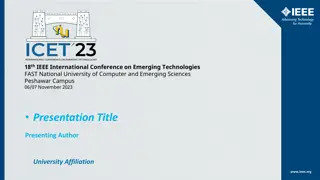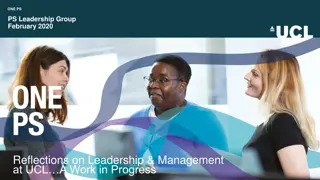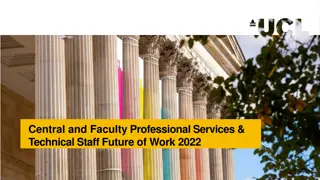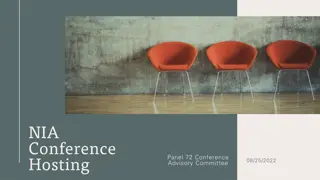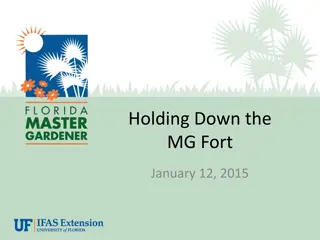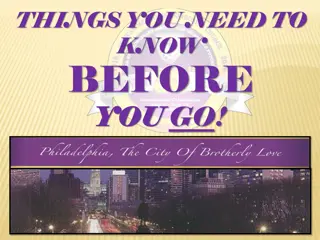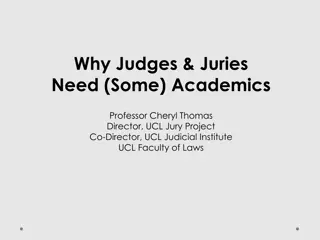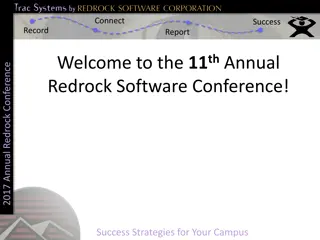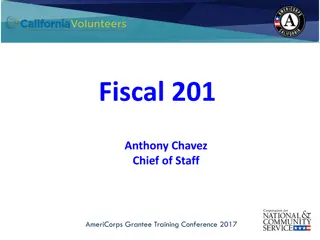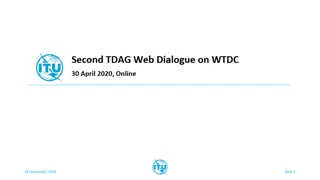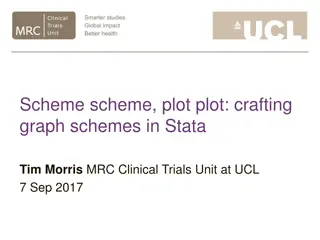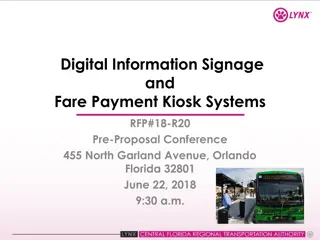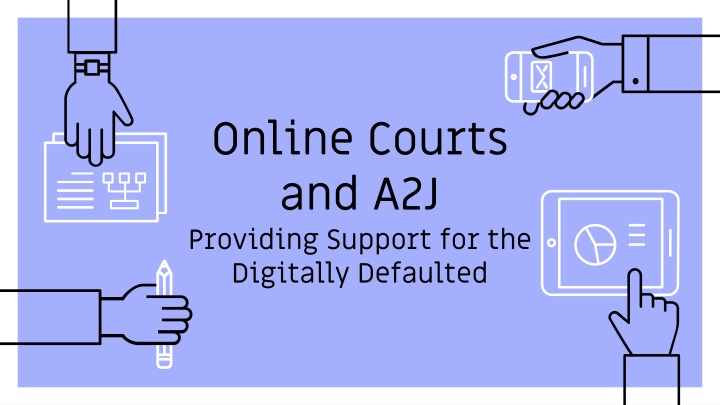
Transforming Courts and Tribunals in the Digital Era
Explore the evolution of online courts and access to justice initiatives, including virtual hearings, digitization of various legal processes, and the shift towards more efficient justice delivery. Discover how the justice system is adapting to the modern world to provide accessible and convenient legal solutions to all.
Download Presentation

Please find below an Image/Link to download the presentation.
The content on the website is provided AS IS for your information and personal use only. It may not be sold, licensed, or shared on other websites without obtaining consent from the author. If you encounter any issues during the download, it is possible that the publisher has removed the file from their server.
You are allowed to download the files provided on this website for personal or commercial use, subject to the condition that they are used lawfully. All files are the property of their respective owners.
The content on the website is provided AS IS for your information and personal use only. It may not be sold, licensed, or shared on other websites without obtaining consent from the author.
E N D
Presentation Transcript
Online Courts and A2J Providing Support for the Digitally Defaulted
CIVIL JUSTICE September 2016 September 2016 -Lord Chancellor, Lord Chief Justice, and the Senior President of Tribunals released a joint vision for the future of Courts and Tribunals New online courts and court services to form part of a 700 million courts and tribunals reform package Virtual hearings A shift to a greater number of decisions on the papers Digitisation of the probate system Digitisation of the process of making an application for divorce Full digitisation of applications for Lasting Powers of Attorney The introduction of court video-link into the Police station A new online process for resolving civil claims Digitisation of the Social Security and Child Support Tribunal 2
Our central principles are enduring the system must be just, proportionate and accessible to everyone but to give them life we must take the opportunities offered by the modern world to administer our system better, and to offer wholly new, more convenient, fleeter routes to justice. HMCTS (2018) Fit for the Future: Transforming the Court and Tribunal Estate 3
Dj vu. Money Claim Online first launched in 2007. Video plea and directions-hearings for Crown Court matters were previously piloted in 2006, Possession claim online scheme to enable individuals to instigate possession proceedings for residential properties for non-payment of rent or mortgage was initially proposed in 2006.
As of March 2018, online services are available for: Divorce Proceedings Online Probate Applications Money Claim Online for small civil claims (MCOL) Applications for Personal Bankruptcy Online Tax Tribunal Appeals Employment Tribunal Claims Online Plea for Traffic Offences Landlord Possession Claims (PCOL) 5 HMCTS So now what ?
Ely Barking & Dagenham Llandrindrod Wells Acton 7
GDS OVERVIEW 2011 2011 GDS Established Overseen a wide-scale programme of cross-government digital change Promote a more cohesive approach to service design Govern the development of new services & assess services Oversee cross-government commitment to the digital-by- default strategy in transactional public services announced in 2012 8
GDS APPROVAL Alpha Alpha core service is built to meet the main user needs Beta the service is improved, then tested in private and public Discovery User needs researched & identified 9 PASS PASS PASS PASS Requires evaluation of the assisted digital support intended to accompany the service LAUNCH!
ADS Assisted Digital Support Departments/Agencies are responsible for determining the nature and scope of assisted digital support and estimating take-up rate 10 HMCTS - providing people with greater access to online services as well as recognisingthe importance of supporting individual needs, even among those who may be confident and familiar with websites The support accompanying the rollout of digital services, provided to those people who need it... DWP part digital coaching and part needs identification MINISTRY OF JUSTICE, 2018
GDS GRADING Top 5 Reasons for Failure Between 26-Point & 18- Point A number of items relating to ADS, channel shift, and success measurement were removed 26-Point Standard N % Criteria 10. Put in place appropriate Assisted Digital Support 29 83 Criteria 9. Create a service that is simple and intuitive 27 77 Criteria 2. Put in place a sustainable multidisciplinary team 23 66 11 Criteria 13. Build a service consistent with the user experience of the rest of GOV.UK 22 63 PASS RATE 18 18- -point scale point scale Criteria 1. Understand user needs. 21 60 18-Point Standard N % 79% (n=79) Criteria 1. Understand user Needs 18 86 21% (n=21) Criteria 12. Make sure users succeed first time 17 81 Criteria 3. Have a multidisciplinary team 15 71 26 26- -point scale point scale Criteria 2. Do ongoing research 12 57 71% (n=99) Criteria 6. Evaluate tools and systems 7 33 25% (n=35)
USER TYPOLOGIES GDS User-Scale forms a cross-government benchmark against which services are assessed and against which the accessibility and complexity of an online service is evaluated. MOJ Customer Segmentation 12
GDS GRADING Civil Claims Employment Tribunal Prison Booking Lasting P.O.A Rating 8 8 7 8 Across Across all 23 exemplar all 23 exemplar services evaluated, none services evaluated, none were classified as were classified as requiring expertise requiring expertise = 9 User Someone acting as a landlord or on their behalf wishing to evict tenants Someone taking an employer to a employment related tribunal Someone visiting a prisoner Someone making a lasting power of attorney application 13 = 9. Specialist Knowledge Some legal knowledge beneficial, not essential Some legal knowledge beneficial, not essential None Some legal knowledge beneficial, not essential
MEASURING ADS DEMAND Need is not a trivial matter to assess. Estimates have tended to range considerably across services, with seemingly little consistency with regards to the measures used to determine ADS need 14 ACCESS ACCESS WILLINGNESS WILLINGNESS CAPABILITY CAPABILITY Easy Not Easy Hard
ACCESS & WILLINGNESS ACCESS ACCESS Data captured in CJSPS/LPRS WILLINGNESS WILLINGNESS GDS,CV2 & CSJPS/LPRS Data 15 Typically been considered a function of access GDS research points to only 42% of non-users indicating that cost is a factor in their lack of access Transactional digital government service use was 10% higher among those reporting a civil justice problem Low recognition rate Court fines (n=29), 56% obtained information from a website, yet only 36% of these went on to compete their transaction online.
CAPABILITY No universal definition of what constitutes digital capability GoOnUK definition produced in 2014 but revised 2015 Basic Online Skills= ALL of the following Searching/Retrieving Information (Managing Information) Sending Emails/Tweeting/Blogging (Communicating) Buying Items from a Website (Transacting) Complete online application forms, which include personal details (Creating) 16 Basic Digital Skills = Basic Online Skills + The ability to 'verify sources of information found online (Problem Solving)
MAPPING TO LPRS Basic Online Skills (BOS) = 1+: -Completing transactional government services online -Buying goods or services -Social Media/Blogging -Online Banking and Managing Finances. 17 Not possible to directly map the aforementioned definitions of Basic Online Skills and Basic Digital Skills to the LPRS data Basic Digital Skills (BOS) = Basic Online Skills + Very or fairly confident in their ability to tell whether the information they find online is accurate
ACCESS KEY FINDINGS 1 or more civil justice problem less likely to report digital exclusion, with the exception of those aged 75 or older 18 Debt, Injury/Illness and Neighboursreported higher levels of digital exclusion (stat sig only in comparison to Consumer matters)
Those with civil justice problems routinely report higher rates of access (Potential or actual) ADR users reported slightly lower levels of digital capability and higher levels lacking Internet access. 19 DIGITAL CAPABILITY Those with administrative legal problems tended to have higher rates of Internet access and Basic Digital Skills compared to those reporting civil justice problems (small & not sig).
5,000,000- 9,000,000 per annum running costs of ADS 20
Includes.. a data entry and scanning process for those who cannot engage with the online process, even with ADS the cost of providing face-to-face ADS the cost of advertising ADS services 21
47,317,584 Proceeds of court sales = >5.2 to < 9.5 years of ADS 22
PROBLEMS The general public is unlikely to understand the distinction between ADS and general advice services even where this distinction is made clear. Civil Legal Advice Mandatory Gateway Civil Legal Advice Mandatory GatewayReview Users expected Operators to be legally trained and offer legal advice, even although a pre-recorded introductory message informed users to the contrary. Review 25 MCOL study MCOL study Key call centrefrustration: the inability of staff to offer advice and frustrations around what constitutes advice as opposed to legal advice the staff did not differentiate between the two and more often than not decided to give no advice rather than risk mistakenly giving legal advice
PROBLEMS Understanding Public unsure of what they are opting into Triaging Little has been said about the triaging process MoJ/HMCTS intends to implement for online courts, the information and guidance that will precede entry to the online court system 26 Disadvantage of Format This has arisen in respect of MCOL as the character text input limitations of the online form, have resulted in a view that the paper form is often preferred. Trust User mistrust issues that arise out of questions asked within digital forms
MODELS Web-chat, face-to-face appointments whilst avoiding use of paper solutions in general. Universal Credit Universal Credit DWP Directs users to a point of access CABx, JobCentre, Libraries DWP Help with Fees Help with Fees Personal Support Units (PSUs) located inside courts were used as access points for the ADS Online Plea Service Online Plea Service Online Plea Service has a call centre If the user is unable to access services via these methods, then they may be given the opportunity to make a claim over phone, or arrange for a home visit GDS encourages service developers to implement a triage service to establish if ADS is actually required, and to determine the type of ADS required Users require an internet-enabled device to facilitate online completion 27 No findings published March 2017 Digital Strategy Those who require assisted digital must enter through a mandatory telephone gateway. Home Office Home Office For telephone support applicants are referred to a Migrant Help UK advisor. For face to face support - book time with library staff or arrange a home visit from We Are Digital. Users without Internet access are oriented to the locally available public terminals Nothing if you re living overseas
WHAT WE NEED Detail around how HMCTS intends to define those in need of/eligible for ADS Impact on Court operations Extent to which Courts will be charged with determining eligibility The rationale for adopting a particular ADS mode Increased transparency around how ADS services will be funded An evaluation of how this aligns with projected reductions in court funding/staff numbers More info re: how the current services deployed will seamlessly map together Consistent approach to publishing service metrics on the performance dashboard, including rates of incomplete or erroneous digital form completion. 28


